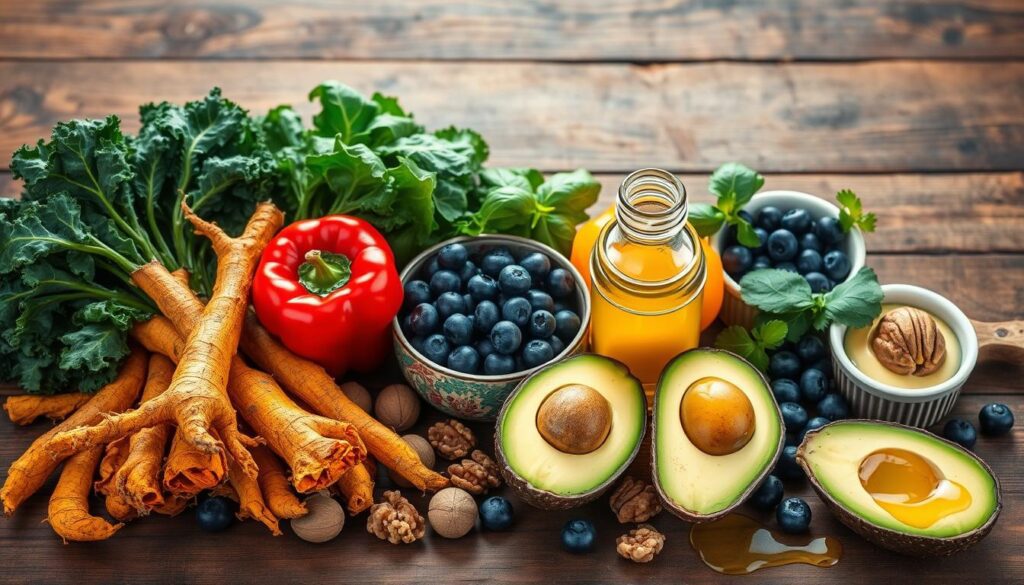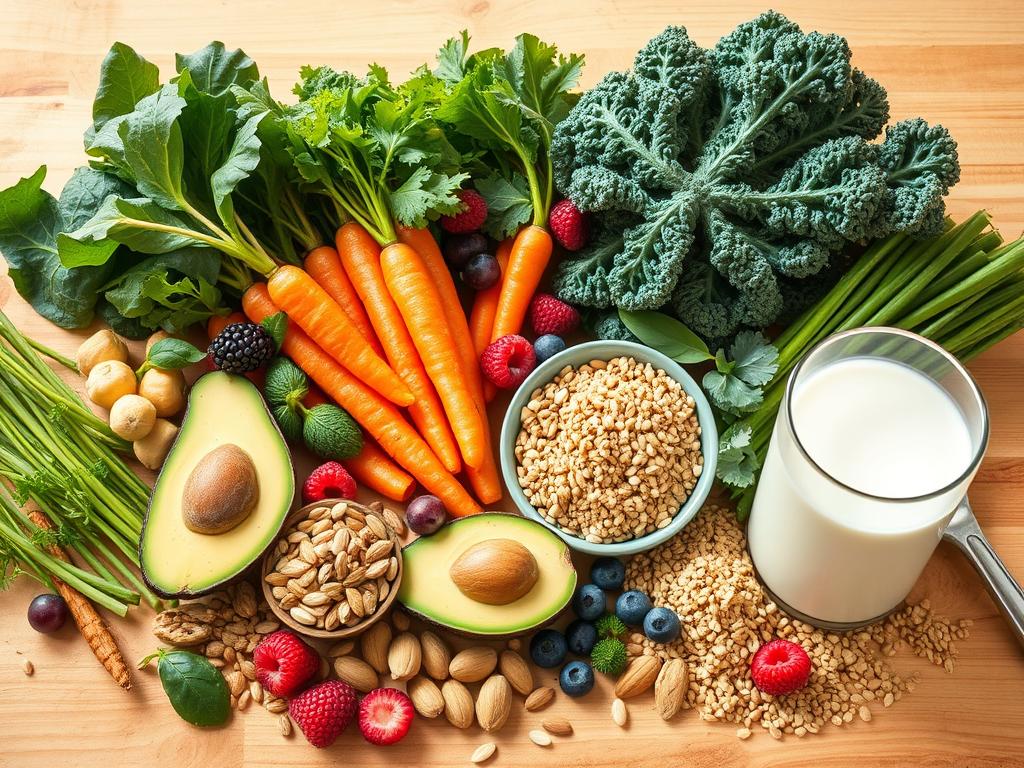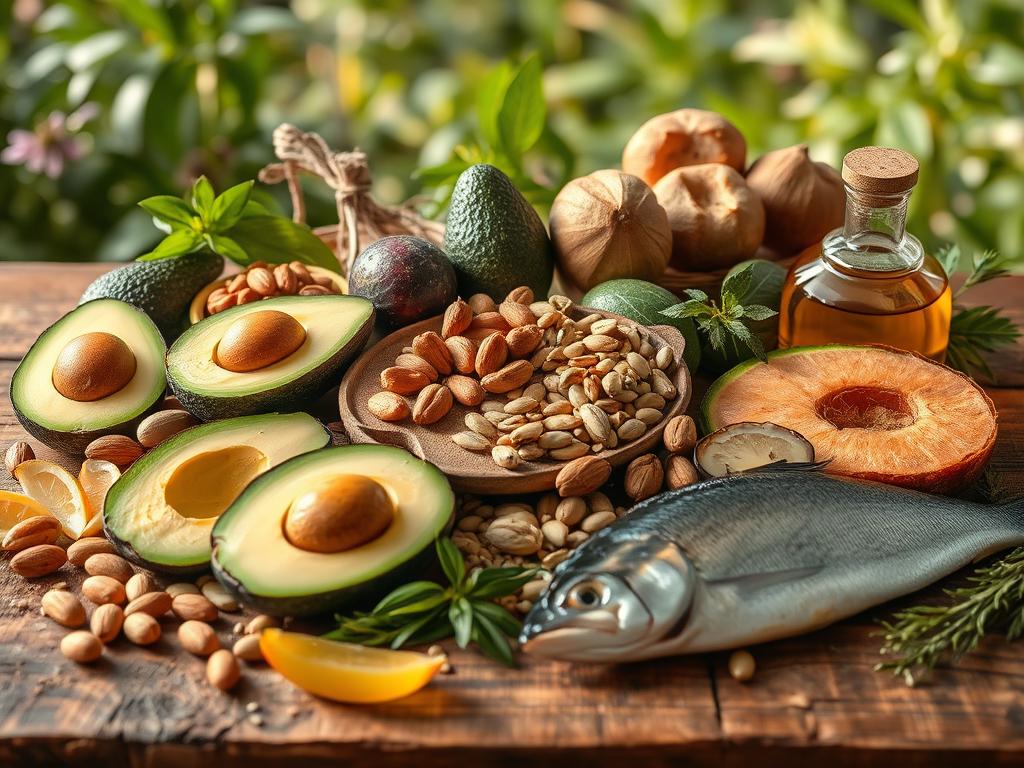Top Anti-Inflammatory Superfoods for Fast, Natural Relief
Have you ever noticed how a meal can leave you feeling rejuvenated, while another might trigger discomfort or fatigue? Many of us have experienced the aftermath of an indulgent feast, not realizing that what we eat can profoundly impact our health. Chronic inflammation is often the silent culprit behind many ailments, lurking in the shadows and affecting our well-being without us even knowing. It can persist for months or even years, quietly linked to serious health issues like heart disease, arthritis, and even cancer.
But there is hope—nature has provided us with an abundance of solutions in the form of anti-inflammatory foods. By understanding the link between diet and inflammation, we can take actionable steps towards a healthier lifestyle. Incorporating the Top Anti-Inflammatory Foods to Reduce Inflammation Naturally not only helps to reduce inflammation but can also support overall health. Imagine waking up energized, free of the aches and discomfort that once plagued you—this is entirely possible with conscious dietary choices that prioritize inflammation management through diet.
Key Takeaways
- Chronic inflammation can persist for months and is linked to serious health risks.
- Incorporating anti-inflammatory foods can significantly improve your overall health.
- Cooking methods like baking and steaming can help reduce inflammation.
- Foods rich in omega-3s and antioxidants provide natural anti-inflammatory benefits.
- Adopting an anti-inflammatory diet may help prevent chronic illness.
Understanding Inflammation and Its Effects
Inflammation plays a critical role in the body’s defense mechanism against injury, infection, and harmful stimuli. While it can be beneficial, the type and duration of inflammation matter significantly. Understanding its forms and the dietary impact on inflammation is essential for overall health.
What is Inflammation?
Inflammation is characterized by redness, swelling, pain, and heat, representing the body’s response to harmful triggers. Acute inflammation occurs as a short-term response to injury or infection, helping to promote healing. When the condition transitions into chronic inflammation, it can lead to various health issues, affecting multiple systems within the body.
Types of Inflammation: Acute vs. Chronic
Acute inflammation is typically temporary, lasting for a few days and resolving once healing takes place. In contrast, chronic inflammation can persist for months or even years, often linked to serious conditions such as heart disease, diabetes, and certain cancers. Chronic inflammation results from systemic imbalances, which may be influenced by lifestyle choices, including diet.
The Role of Diet in Inflammation Management
The dietary impact on inflammation is substantial. A diet rich in processed foods and sugars can worsen inflammation, while a focus on anti-inflammatory foods promotes healing. Recommended dietary changes include increasing the intake of omega-3 fatty acids, widely recognized for their ability to reduce inflammation, and incorporating a variety of fruits and vegetables that contain powerful antioxidants. Transitioning to a Mediterranean diet has consistently shown lower levels of chronic inflammation, highlighting the significance of food choices in managing inflammation effectively.
Top Anti-Inflammatory Foods to Reduce Inflammation Naturally
Incorporating the right foods into your diet can play a pivotal role in combating inflammation. Research has identified several options as some of the best foods for reducing inflammation effectively. These inflammation-reducing foods not only enhance your health but also contribute to overall well-being.
Berries: Nature’s Anti-Inflammatory Powerhouses
Berries such as strawberries, blueberries, and blackberries are packed with antioxidants, particularly anthocyanins, which are known for their potent anti-inflammatory properties. Regular consumption of these fruits can significantly lower the risk of chronic diseases and improve health markers.
Fatty Fish: Rich in Omega-3s
Fatty fish like salmon, sardines, and mackerel are among the top anti-inflammatory foods due to their high content of omega-3 fatty acids, including EPA and DHA. These essential fats help reduce inflammatory markers, making fatty fish a valuable addition to an anti-inflammatory diet.
Broccoli and Other Cruciferous Vegetables
Broccoli, along with other cruciferous vegetables such as Brussels sprouts and cauliflower, contains sulforaphane, an antioxidant that effectively reduces inflammation. These vegetables contribute to better overall health by lowering levels of pro-inflammatory molecules in the body.
Curcumin in Turmeric: A Superfood for Inflammation
Curcumin, the active ingredient in turmeric, boasts strong anti-inflammatory properties. It is particularly effective in alleviating inflammation resulting from various diseases. Including turmeric in your meals can aid in managing chronic inflammation and promote health.
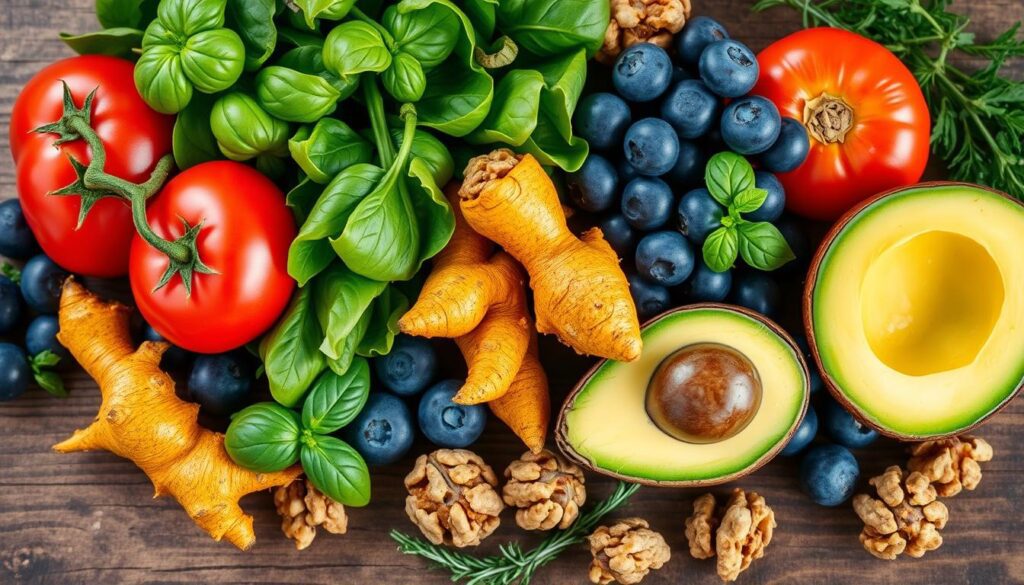
The Benefits of an Anti-Inflammatory Diet
An anti-inflammatory diet offers numerous advantages that extend beyond weight management. By incorporating nutrient-rich foods, individuals can experience profound health benefits that contribute to overall well-being. This dietary approach emphasizes the importance of consuming whole foods and nutrient-dense options, which can significantly impact one’s health.
How Anti-Inflammatory Foods Help Prevent Disease
Integrating anti-inflammatory foods into daily meals could play a crucial role in helping to prevent disease. Nutrient-dense foods such as fruits, vegetables, whole grains, and healthy fats contribute to reducing the risk of chronic illnesses. Studies show that diets rich in omega-3 fatty acids, found in fish and flaxseed, may lower inflammatory markers in the body. This not only aids in maintaining a healthy weight but also addresses underlying health issues effectively.
Improved Digestion and Gut Health
The relationship between diet and gut health is significant. An anti-inflammatory diet often includes fiber-rich foods and probiotics, which are beneficial for digestion. These nutrients work together to support a balanced gut microbiome, essential for maintaining good gut health. A healthy gut can reduce inflammation throughout the body and enhance overall immune function, contributing to long-term health benefits.

Foods to Avoid for Reducing Inflammation
Understanding which foods to avoid is essential for managing inflammation effectively. Certain inflammatory foods can trigger harmful responses in the body, exacerbating conditions like arthritis and heart disease. Eliminating these foods is a crucial step toward achieving a healthier lifestyle.
Inflammatory Foods: A Guide to What Not to Eat
Several common dietary items contribute to inflammation. These include red and processed meats, sugary drinks, and trans fats. Avoiding inflammatory foods is vital for promoting long-term health. Consuming high amounts of saturated fats often found in animal products can also lead to increased inflammation levels. Reducing or eliminating these foods can enhance your overall well-being.
Understanding Processed Foods and Their Impact on Inflammation
Many processed foods contain hidden sugars and unhealthy trans fats that can worsen inflammation. Reading ingredient labels is essential for avoiding these harmful additives. A diet rich in fresh fruits, vegetables, and whole foods is an effective way to support your body in its fight against inflammation. Replacing processed snacks with healthier options not only helps in reducing inflammation but also provides essential nutrients.
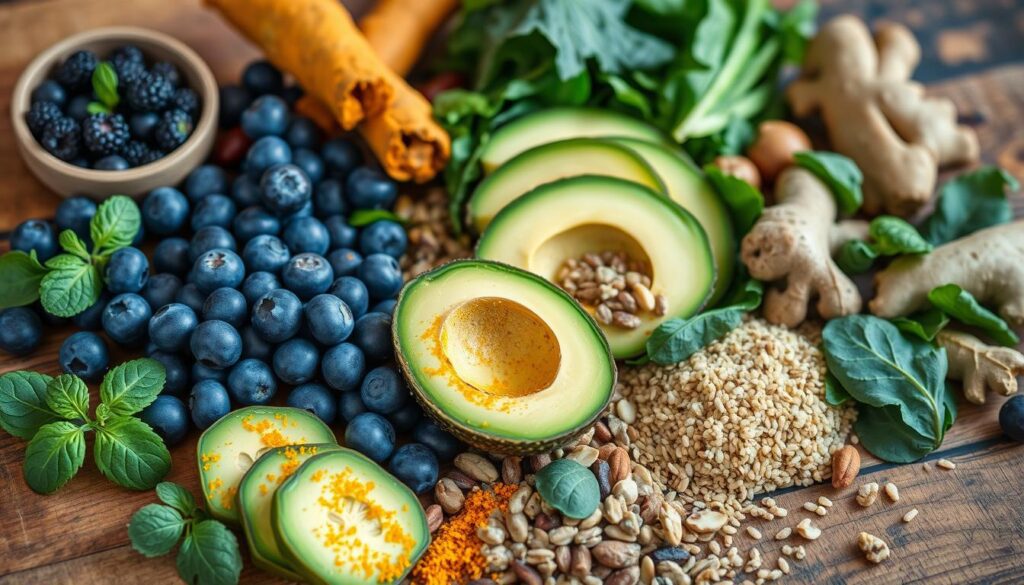
Integrating Anti-Inflammatory Foods into Your Diet
Creating a practical approach to an anti-inflammatory diet is essential for enhancing overall health. Meal planning plays a vital role in ensuring that individuals can seamlessly incorporate anti-inflammatory foods into their daily routines. Stocking up on superfoods can significantly impact long-term well-being and inflammation management.
Meal Planning: Tips for an Anti-Inflammatory Diet
Effective meal planning starts with a focus on incorporating a variety of anti-inflammatory foods. Prioritize fruits, vegetables, whole grains, and healthy fats that provide essential nutrients. Consider preparing meals in advance, which allows for quick and convenient access to these foods during busy times, preventing the temptation to resort to processed, inflammatory options.
Superfood Combinations for Maximum Benefit
Combining different superfoods not only enhances the flavor of meals but also maximizes their health benefits. For example, pairing berries with dark chocolate can create a delicious treat that also supports inflammation reduction. Additionally, using olive oil in salads or as a cooking fat can enrich dishes while boosting their anti-inflammatory properties.
Natural Remedies for Inflammation Management
When seeking natural remedies for inflammation, incorporating herbs and spices for inflammation into your daily meals can make a significant difference. Staples like ginger, garlic, and turmeric not only enhance the flavor of your dishes but also pack a potent anti-inflammatory punch. Each of these ingredients has been studied for its potential to alleviate inflammation, making them ideal choices for anyone looking to manage chronic inflammation.
The Role of Herbs and Spices
In addition to their culinary uses, herbs and spices are rich in antioxidants and bioactive compounds. For example, turmeric contains curcumin, which has been shown to help individuals with inflammatory conditions such as arthritis. Incorporating a variety of these spices into your diet can help combat inflammation and support overall health. Tea varieties, including black, green, and white, also have beneficial properties, making them great additions to a balanced diet aimed at reducing inflammation.
Hydration and Inflammation: The Importance of Water
Proper hydration plays a crucial role in inflammation management. Drinking adequate water aids in maintaining optimal body function and supports natural detox processes. Staying hydrated can help flush toxins out of your system, thereby reducing the inflammatory response. Aim to drink at least eight glasses of water a day as part of your wellness routine, as achieving adequate hydration is essential for anyone looking to manage inflammation effectively.

